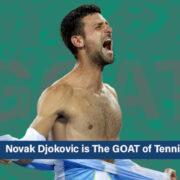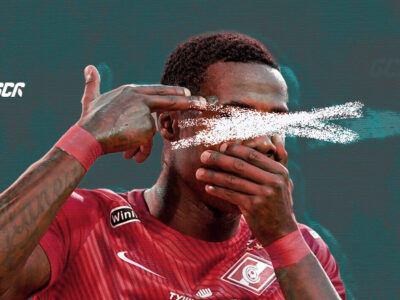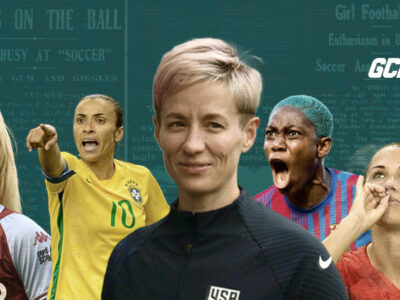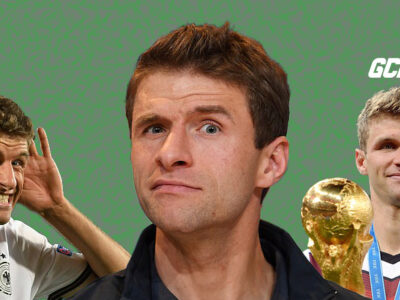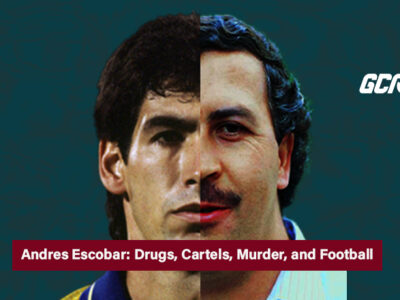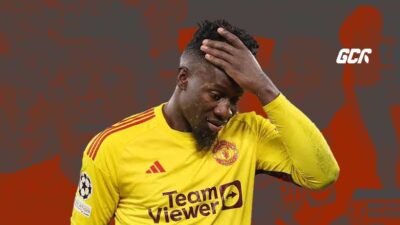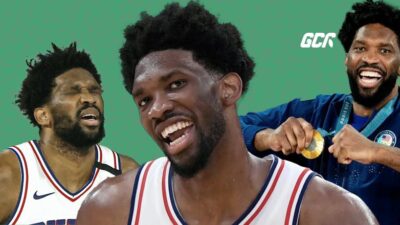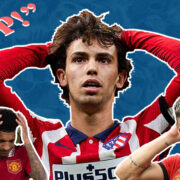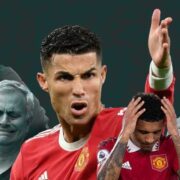The video of Inaki and Nico Williams arguing on the pitch after a key victory will go down in history as one of the top sibling moments in sports.
But what’s more iconic is the picture of them running down the pitch with the Copa del Rey in front of Bilbao fans after defeating Mallorca in penalties.
From growing up in a family of undocumented immigrants to breaking the glass ceiling for black players at Bilbao, this is the remarkable story of the Williams brothers.
Who are the Williams brothers?
Inaki and Nico Williams are siblings who play for the Basque club Athletic Bilbao. Born in Spain to Ghanaian parents Felix and Maria Williams, the Williams brothers were plunged into poverty.
Inaki Williams ⚽️🅰️
— Mail Sport (@MailSport) March 1, 2024
Nico Williams ⚽️🅰️
The Williams brothers scored and assisted each other to send Athletic Bilbao through to the Copa Del Rey final! 🤝🇪🇸 pic.twitter.com/CM4pzNe4UV
Maria and Felix moved to Pamplona, getting state housing in a humble, hardworking barrio with lots of races where people made ends meet however they could. They met Iñaki Mardones, a priest who became Iñaki’s godfather and guardian. He also gifted young Iñaki his first Athletic Club jersey as a kid.

With both parents struggling to provide for a young family, Felix Williams had to travel to London to work for over a decade. His absence forced Iñaki to become a father to Nico, shouldering the responsibility of providing for the family.
Athletic Bilbao’s unique football culture
The Basque Country is an autonomous community in Spain with a population of over 2.2 million people. Two of the nation’s best teams, Real Sociedad and Athletic Bilbao, are based in the area. Although neither side has won the Spanish First Division (La Liga) title since the early 1980s, they have both been a staple of the competition for many decades.

Remarkably, Athletic Club is one of the 3 Spanish sides (including Barcelona and Real Madrid) never to have been relegated from the Primera División.
But Athletic Bilbao is different from any other team in Spain: they only recruit players born in the Basque Country or those who have come through the academy of a team within the region.
“That’s unique in the world. You see people who have been season ticket holders all their lives and they don’t watch other games; they only watch Athletic.”
— Ander Herrera.
Bilbao’s transfer policy stems from nationalism. The Basque people, who have their own language, as many of the autonomous communities of Spain do, see themselves as being part of one nation.
This 126-year-old tradition has survived two World Wars, one Cold War, and 22 FIFA World Cups. As a consequence, Athletic Club can only select from a limited pool of top-level players, which also means a lack of diversity in the squad.
To be fair, I don’t think diversity is an issue that should be enforced, but given the history of racism in Spanish football, people have misconstrued the exclusivity policy as inherent racism.
Why are the Williams brothers a big deal in Bilbao?
This lack of diversity in the playing squad has led to criticism of the policy, as it leads to this being the case. Parts of the fanbase have made suggestions to clear up and slightly alter the philosophy at the heart of the club. Some have asked why the children of Basque-born people aren’t allowed to play for the club when they would be allowed to play for a Basque national team.
Inaki Williams and Nico Williams embracing their roots and ancestry 🇬🇭 pic.twitter.com/Qf22yCvP4d
— Owuraku Ampofo (@_owurakuampofo) June 8, 2022
This changed when 18-year-old Jonas Ramalho made his debut, becoming the first black player to play for Athletic. But he never blossomed into a nailed-on starter at Bilbao.
Unlike Ramalho, the two Ghanaian brothers, Inaki and Nico Williams, have become integral members of the current Athletic Bilbao squad. Inaki made history by becoming the first Black player to score for the club. With over 400 appearances, including a La Liga record of 251 consecutive games for Bilbao, Inaki has solidified his position as a cult hero and club legend.
🤜🏿🤛🏿 Athletic WIN.
— Athletic Club (@Athletic_en) February 29, 2024
Williams. Iñaki. Nico.#AthleticAtleti 🏆 #AthleticClubpic.twitter.com/2oX95GuhYK
His younger brother Nico is one of the most promising young talents in world football. Although he represents Spain internationally, he shares his brother’s passion for paving the way for a more diverse future at Athletic Club.
Inaki and Nico also became the first brothers to play together in La Liga for Athletic since 1986, in the game against Real Valladolid at the San Mames. The duo made La Liga history when they became the first pair of brothers to score in the same top-flight match since Diego and Gaby Milito scored for Real Zaragoza against Barcelona in 2005.
But is Nico Williams Basque like his brother? The answer is yes. Despite having Ghanaian parents, both Williams brothers were born in the Basque country, which makes them citizens of the region.
Why do the Williams brothers play for different countries?
Inaki Williams plays for Ghana, and Nico Williams plays for Spain. Although the brothers are eligible for both countries, Inaki’s rise came during a period when La Roja had an abundance of attackers, so he opted to represent Ghana instead.
Nico Williams’ decision to represent Spain suggests a desire to carve out his own path. The Spanish national team has been actively building a new generation of young players to rejuvenate the aging squad. The competition for places is intense, with youngsters like Gavi and Lamine Yamal coming to the fore. However, Nico’s talent and potential ceiling suggest that he could thrive in such an environment.
Inaki and Nico played for Ghana and Spain, respectively, at the 2022 FIFA World Cup and repeated the feat of the Boateng brothers, who played for different nations in 2010 in South Africa and 2014 in Brazil.
What’s the Impact of Inaki and Nico Williams?
Inaki played a major role in winning the club’s only ‘major’ silverware since the late 1980s. He has also been part of an exciting generation of Bilbao attackers.
Both siblings participated in the thrashing of rivals Atletico Madrid in the Copa del Rey. And now, they’ve defeated Mallorca to bring home Athletic Bilbao’s first major trophy in over 4 decades.

Inaki has been the subject of bids from top clubs, but he never made the move away from Bilbao. In his prime years, there were rumours that Chelsea wanted him, but they opted for Morata and Lukaku instead.
Nico Williams is an amazing talent with huge potential. He has been on a steady rise and has caught the eye of the big teams. His performances at the 2024 Euros alongside Lamine Yamal has elevated his transfer value.
While the 29-year-old Inaki Williams might be edging closer to becoming a one-club man, his Nico Williams looks prime for a move to a European giant.
©️ Iñaki Williams on #NicoWilliams2027
— Athletic Club (@Athletic_en) December 29, 2023
"A dream come true. It's amazing to play alongside my brother every weekend at San Mames and see our parents in the stands."
"It's also a message for the lads in the academy, that they should place their trust in Athletic." pic.twitter.com/sIQ1rGTotl
The Williams brothers’ presence in the team has brought a new level of diversity to Athletic Club, adding a new flavour to the club’s tradition of only selecting players of Basque descent. This shift towards inclusivity marks an exciting era for the club, as it embraces the opportunity to incorporate diverse perspectives and skills onto the pitch.
“As an older brother, it makes me really proud to see how he has grown, to see how he is improving as a footballer. He has no ceiling.”
Inaki Williams
As the Williams brothers continue to make strides in football, they serve as role models for aspiring athletes from diverse backgrounds. Their stories demonstrate that hard work, dedication, and perseverance can lead to success regardless of origin or ethnicity.
Who wrote this?
Okpanku has been involved in several disputes that have been brought before the FIFA Tribunal. Additionally, he actively engages in grassroots coaching and strongly advocate for the dynamic nature of football.








